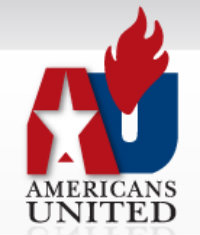

Barry W. Lynn, executive director of Americans United for Separation of Church and State, has written a letter to Lois G. Lerner, director of the IRS's Exempt Organizations Division, in which he requests that Ms. Lerner consider that in this sermon Pastor Charles Worley violated federal law by intervening in an election.
Dated May 23, 2012, Mr. Lynn's letter reads:
Lois G. Lerner, Director
Exempt Organizations Division
Internal Revenue Service
1111 Constitution Ave. N.W.
Washington, D.C. 20224Dear Ms. Lerner,
I am writing today with information about a church in Maiden, N.C., that I believe has violated
federal law by intervening in an election.On May 13, Pastor Charles L. Worley of Providence Road Baptist Church delivered a sermon denouncing President Barack Obama's support for same-sex marriage.
During his remarks, Worley suggested quarantining gays and lesbians and allowing them to die. These hateful and repugnant statements attracted much media attention. (See news story enclosed.) But it should not be overlooked that Worley's comments also included a partisan appeal related to the November election.
Worley referred to "our president getting up and saying that it was all right for two women to marry or two men to marry" and added, "I was disappointed bad." He then went on to say, "Someone said, 'Who ya gonna vote for?' I ain't gonna vote for a baby killer and a homosexual lover. You said, 'Did you mean to say that?' You better believe I did."
In context, it is clear that Worley is urging congregants to vote against Obama in the presidential election.
As you know, federal tax law prohibits churches and other 501(c)(3) nonprofits from intervening in elections on behalf of or in opposition to any candidate for public office. When the top official of a religious organization - the chief pastor of the church - issues an appeal to congregants from the pulpit during a worship service in the strongest possible terms to vote against a candidate, it is clearly intervention in an election.
Church leaders seem to realize that the sermon is problematic. It has been removed from the church's website, and in fact the church's entire website is (as of today) no longer online.
The relevant portion of the sermon, however, is widely available on You Tube. I collected it today at the following sites:
http://www.youtube.com/watch?v=d2n7vSPwhSU&feature=youtu.be
http://www.youtube.com/watch?v=w2839yEazcs
http://www.youtube.com/watch?v=3TvvRlweyl0
You can also find it simply by searching YouTube for "Charles Worley."
I believe Pastor Worley's comments represent a clear violation of federal law. I urge you to investigate this matter.
Sincerely,
Barry W. Lynn
Executive Director
Americans United for Separation of Church and State
1301 K Street NW, Suite 850E
Washington, DC 20005
Phone: (202) 466-3234
Fax: (202) 466-2587
americansunited@au.org
You can view the letter on AU's website here.
I think Mr. Lynn's letter could prove to be the snowball that finally starts the avalanche that ultimately wipes out political proselytizing from the pulpit of American churches.
From Section 501 of the Internal Revenue Service Tax Code (which is the part that applies to churches):
Organizations that are exempt from income tax under section 501(a) of the Internal Revenue Code as organizations described in section 501(c)(3) may not participate in, or intervene in (including the publishing or distributing of statements), any political campaign on behalf of (or in opposition to) any candidate for public office.
...
Section 1.501(c)(3)-1(c)(3)(i) of the Income Tax Regulations states that an organization is not operated exclusively for one or more exempt purposes if it is an "action" organization.
Section 1.501(c)(3)-1(c)(3)(iii) of the regulations defines an "action" organization as an organization that participates or intervenes, directly or indirectly, in any po litical campaign on behalf of or in opposition to any candidate for public office. ... The regulations further provide that activities that constitute participation or intervention in a political campaign on behalf of or in opposition to a candidate include, but are not limited to, the publication or distribution of written statements or the making of oral statements on behalf of or in opposition to such a candidate.
...
For their organizations to remain tax exempt under section 501(c)(3), leaders cannot make partisan comments in official organization publications or at official functions of the organization.
...
Section 501(c)(3) organizations must avoid any issue advocacy that functions as political campaign intervention. Even if a statement does not expressly tell an audience to vote for or against a specific candidate, an organization delivering the statement is at risk of violating the political campaign intervention prohibition if there is any message favoring or opposing a candidate. A statement can identify a candidate not only by stating the candidate's name but also by other means such as showing a picture of the candidate, referring to political party affiliations, or other distinctive features of a candidate' s platform or biography. All the facts and circumstances need to be considered to determine if the advocacy is political campaign intervention.
Key factors in determining whether a communication results in political campaign intervention include the following:
• Whether the statement identifies one or more candidates for a given public office;
• Whether the statement expresses approval or disapproval for one or more candidates' positions and/or actions;
• Whether the statement is delivered close in time to the election;
• Whether the statement makes reference to voting or an election;
• Whether the issue addressed in the communication has been raised as an issue distinguishing candidates for a given office;
• Whether the communication is part of an ongoing series of communications by the organization on the same issue that are made independent of the timing of any election; and
• Whether the timing of the communication and identification of the candi date are related to a non-electoral event such as a scheduled vote on specific legislation by an officeholder who also happens to be a candidate for public office.
A communication is particularly at risk of political campaign intervention when it makes reference to candidates or voting in a specific upcoming election.